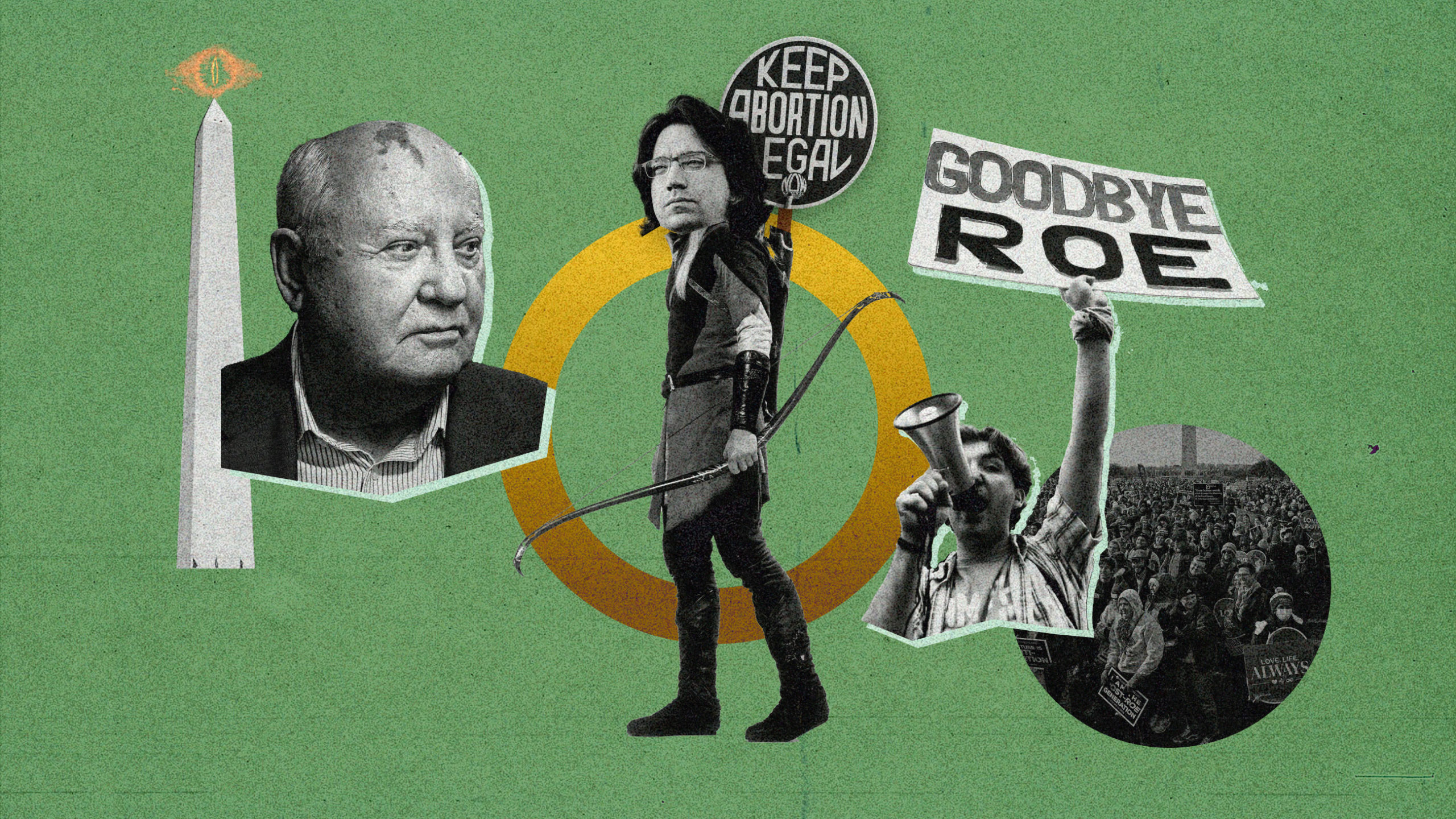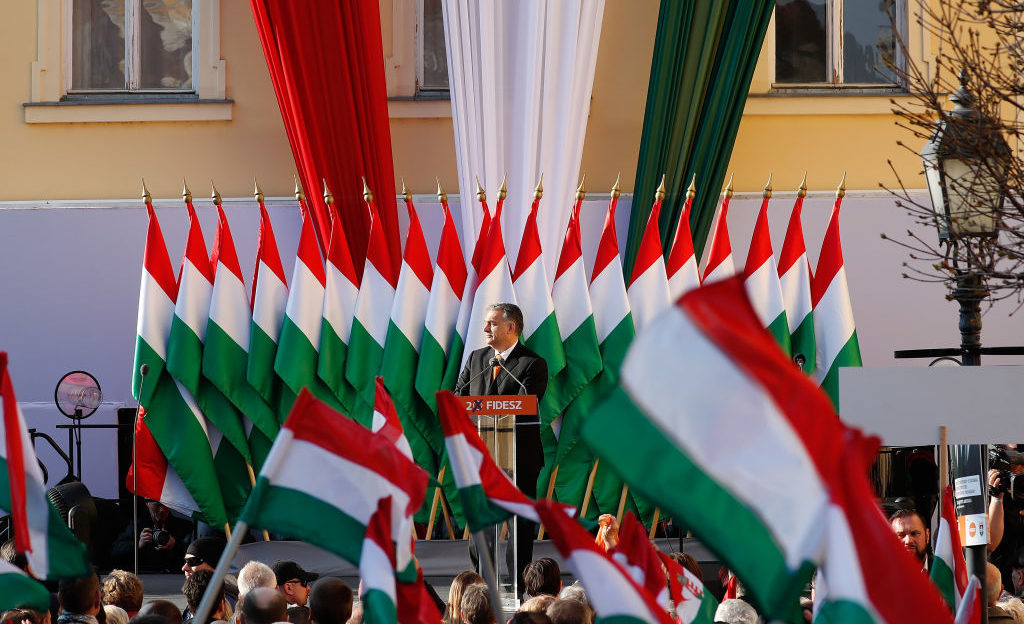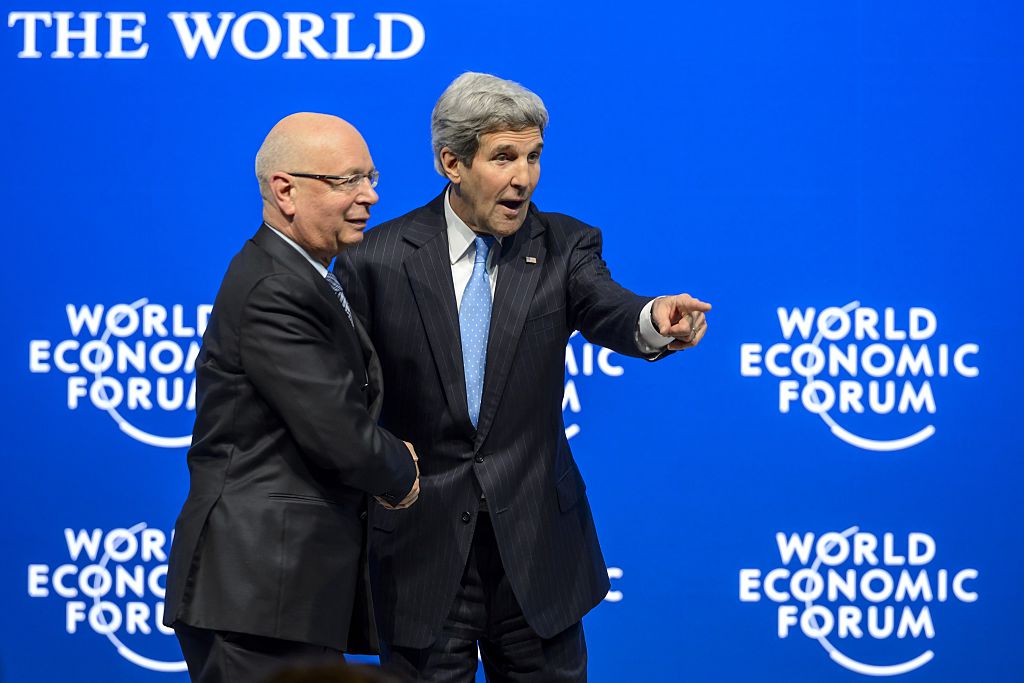The hateful arrogance of our ruling class is an established fact—proceed accordingly.
Progressive “Democracy” Strikes Back

Donald Tusk’s coalition government represents the authoritarian face of the new “anti-authoritarian” movement.
“Liberal Poland is back” blared a headline at the website of the Real Instituto Elcano, a semi-official Spanish think tank that reflects and cheerleads for establishment European opinion. In the article, two Polish political scientists lauded Poland’s return “to the European political mainstream,” a result of the victory of Donald Tusk’s rainbow coalition of Europhile, liberal, and left-of-center parties in last fall’s parliamentary elections. While the socially conservative and sovereigntist Law and Justice Party (PiS) won the most seats (194 out of 460) in the Sejm, the lower house of Poland’s parliament, Donald Tusk’s Civic Coalition (KO), in alliance with the “Third Way” and New Left parties, managed to form a coalition of 248 parliamentary deputies. For the next few years, Poland will be moving in a dramatically different direction.
Since European elites despised the Catholic conservatives who governed Poland from 2015 onward for their firm support for Poland’s sovereignty and their fierce resistance to the moral and cultural progressivism that goes by the name of “European values,” European establishment opinion has welcomed this transfer of power as “the victory of democracy” and liberalism over discredited authoritarianism. In truth, however, the victory of the opposition, and the peaceful transfer of power to them, should have led commentators and observers to doubt the ritualistic misrepresentations of a Polish conservative government supported by at least half the Polish people.
However distasteful its policies were to post-religious, post-national elites, Poland was a functioning democracy under the Law and Justice government of Jarosław Kaczyński. To say otherwise is to identify democracy exclusively with fealty to progressivist European values, that is, to an aggressive secularism and support for liberalized abortion and the morality and family-dissolving LGBTQ+ agenda.
For the bien-pensants, Poland must go the way of post-Christian Ireland if it is to be considered a truly European nation. For them, democracy means supine acceptance of governance by post-national technocratic elites and a willingness to say goodbye to the Christian inheritance of the West. As Pierre Manent has very ably put it, “the old nations” and “the old religion” must be sacrificed on the altar of “the religion of humanity.” Pope John Paul II, the pride of the Polish nation and hardly a reactionary, could not be considered a truly European figure under these revisionist criteria. Nor could any conservative-minded democrat or liberal. Something is deeply wrong with democracy so redefined.
The new Polish government of Prime Minister Donald Tusk (who served as the President of the European Council from 2014 to 2019) is hardly liberal in any recognizable sense of the term. It treats members of the Law and Justice Party and its supporters as enemies of democracy in an occupied country that needs to be purged of authoritarian elements and retrograde thinking. It thus represents the authoritarian face of the new “anti-authoritarianism.” It was not always thus.
Members of Civic Platform, as the principal grouping in the Civic Coalition is called, once supported the social conservatism of the Polish people and were considered a center-right party, mainly because of their commitment to economic liberalism and to European values. They were tepid in purging ex-Communists from positions of influence in Polish national life (“let bygones be bygones”), and their accommodation to the Catholic dimensions of Polish culture was more tactical than heartfelt. But as the European consensus has grown less tolerant of traditional morality and meaningful displays of national self-determination, Civic Platform’s liberalism has become more globalist and less Polish, more coercive and less consensual.
Like most European pseudo-liberals, they support the abstract rule of democratic values defined and enforced by progressive elites, that is by themselves rather than the self-government of a free people or demos. As Pierre Manent has put it: these elites want a kratos, an abstract rule of governance without a self-governing demos to get in the way. In keeping with this distinction, Tusk’s government has aggressively shut down Polish state television in an effort to purge any remaining media presence of Poland’s conservatives. Leaders of Law and Justice have been brought up on spurious corruption charges, and the police even “dramatically stormed Warsaw’s presidential palace in early January…arresting two politicians” who have been subsequently released but banned from entering the Sejm. The new government has also refused to honor a perfectly valid pardon of these men by Poland’s conservative president Andrzej Duda, as reported in The European Conservative.
To their discredit, major European newspapers and politicians have praised these assaults on democracy as necessary efforts to save democracy and the rule of law. This is an insidious Orwellian technique increasingly familiar to Americans. The authors of the “Liberal Poland is back” piece praise Tusk for showing that liberalism has a spine and even suggest that it would be “undemocratic” of President Duda to too vigorously oppose the new government’s policies or veto its legislation. Under the new “liberal” dispensation, it is “undemocratic” to oppose democratic values as defined by those imbued with a properly “European” approach to politics, culture, and society. Political liberty plays a quite subordinate role in this new way of defining the democratic dispensation.
My guess is that Tusk and his rainbow coalition have seriously overreached. To be sure, many Poles under 40 have turned away from the Catholic faith and identify with the new European approach to morality that has turned out to be more coercive than tolerant. Poland’s Catholics have a harder time transmitting the faith, and the natural law-based morality that accompanied it, than they used to have. They must learn to evangelize again, and to persuade and convince the younger generations. For their part, the leaders of Law and Justice have often been excessively clericalist and politically clumsy, and slow to adjust to changes in Polish society. And Poland is now a rich, or almost rich, country, and with prosperity comes a certain moral laxity and a popular culture inordinately shaped by social media.
But Poles are in no immediate danger of becoming an aggressively secularist and relativistic people à la Quebec, Ireland, or much of Spain. My hunch is that Poles remain a sovereigntist people at heart, welcoming E.U. subsidies but opposing efforts to sacrifice self-government and the Polish soul to a European Behemoth. The Green New Deal will not be popular, to say the least, with Poland’s rural sector. Law and Justice will fight back against the new authoritarianism, and President Duda will exercise the prerogatives of the presidency to offer firm but prudent constitutional resistance to the coercive measures of the new government.
In a brilliant guide to contemporary Poland’s discontents that appeared in the Winter 2021/22 issue of the Claremont Review of Books, Christopher Caldwell argued that, along with the United States, Poland is the most politically and culturally polarized country in the democratic world. Its progressives cannot stamp out half the nation, whatever they think after the exhilaration of electoral victory. Americans therefore should pay particular attention to the Polish test case where soi-disant liberals, progressives, and democrats are tempted to undermine fundamental liberties and self-government in order to save a self-imposed globalist consensus on what democracy requires today. De nobis res agitur (it is about us).
One thing we can be sure of: We will no longer be reading overwrought denunciations of Poland from Anne Applebaum in the pages of the Washington Post and the Atlantic magazine. Her husband Radek Sikorski is once again Foreign Minister of a Poland ruled by the left-liberal rainbow coalition. He is a man of some talent and judgment so we hope he will rise above the anti-democratic forces in the government he has chosen to serve. Time will tell.
The American Mind presents a range of perspectives. Views are writers’ own and do not necessarily represent those of The Claremont Institute.
The American Mind is a publication of the Claremont Institute, a non-profit 501(c)(3) organization, dedicated to restoring the principles of the American Founding to their rightful, preeminent authority in our national life. Interested in supporting our work? Gifts to the Claremont Institute are tax-deductible.
The elite war on free enterprise.
The Right can and must fight the culture war.
The global establishment's assault on national sovereignty.
All hail our globalist overlords.
Taking a stand against the machinations of our global elites.






